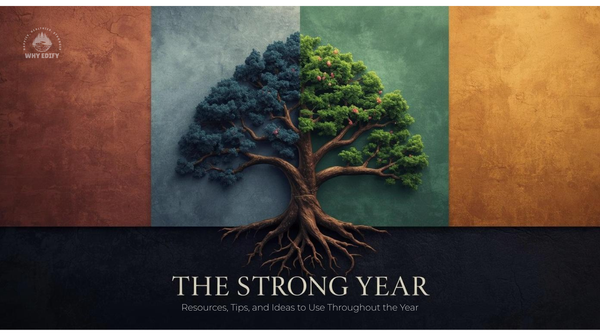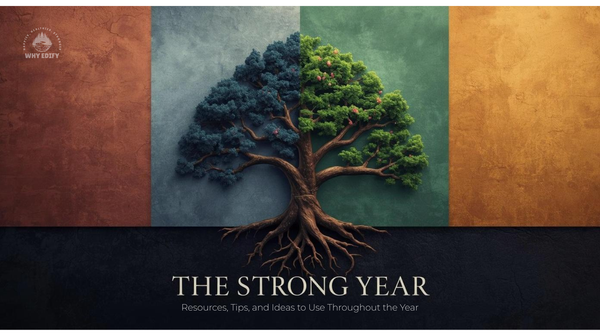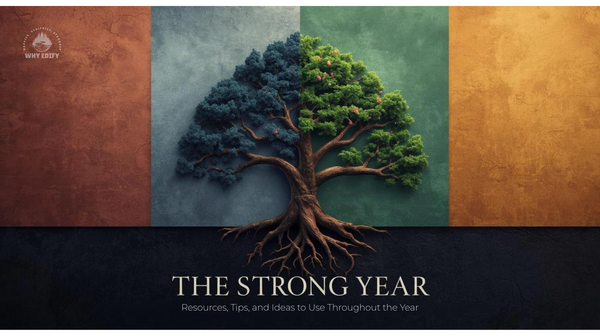Why Modeling Values Is the Strongest Lesson You’ll Ever Teach
Teaching is more than academics. Here’s how living your values can strengthen classroom culture and reduce burnout.

What makes a “good teacher”? Is it high test scores? Smooth classroom management? Innovative lessons? Endless passion?
We spend a lot of time in education circles debating these questions. But Marcus Aurelius, the Stoic philosopher, offered a sharper focus when he wrote:
“Waste no more time arguing about what a good man should be. Be one.”
His words remind us that the real measure of a teacher isn’t about what we claim to value — it’s about how we embody those values in the classroom and beyond
Teaching by Example
Our students may not remember every equation, date, or vocabulary word we teach. But they rarely forget how we made them feel. Research on social-emotional learning confirms this: relationships, trust, and the modeling of emotional regulation have as much impact on learning as academic content.
Everyday choices are the true curriculum:
- Patience when frustration would be easier.
- Kindness when criticism feels more natural.
- Integrity when no one is watching.
Each interaction communicates more powerfully than our lesson plans. Students are always observing us — noticing how we react when technology fails, how we handle interruptions, or how we respond to mistakes. In these moments, they learn what it looks like to live values under pressure.
Beyond the Classroom Walls
The challenge of alignment — of living what we say we believe — doesn’t stop when the bell rings. Outside of school, we face the same temptation to define goodness instead of practicing it:
- We read about health but never take the walk.
- We talk about balance while overstuffing our calendars.
- We post about gratitude yet complain endlessly in private.
The Stoics remind us that virtue isn’t abstract. It’s practiced in the ordinary, repeated actions of daily life. Want to be more courageous? Speak up when it matters. Want to live honestly? Own your mistakes without excuses. Want to practice compassion? Make the call, write the note, show up for someone who needs you.
Goodness is less about intention and more about demonstration.
Why This Matters for Teachers
When teachers live their values, several powerful things happen:
- Credibility grows. Students trust us when they see consistency between our words and actions.
- Classroom culture strengthens. A teacher who models patience, fairness, and respect builds a safer, calmer environment.
- Burnout decreases. Acting in alignment with our values reduces inner conflict and stress — we feel more authentic and energized.
- Ripple effects spread. Students mirror what they observe. A teacher modeling kindness or resilience makes it more likely students will do the same with peers.
A Simple Challenge
This week, choose one value you want to embody more intentionally. Maybe it’s patience, courage, kindness, or honesty. Write it down. Post it where you’ll see it. Share it with a trusted colleague.
Then practice it intentionally — in your classroom, in the staff lounge, or at home. Notice the difference in how you feel and how others respond.
Reflection Prompts
- What value do you most want your students to associate with you?
- When do you feel most out of alignment with your values, and why?
- How could practicing one value consistently this week shift your classroom culture?
- Who in your life models values so clearly that you feel inspired by their example?
Closing Thought
The measure of a teacher isn’t found in evaluation rubrics or test scores. It’s found in the hundreds of small choices we make each day — choices that reveal our values, shape our classrooms, and echo into the lives of our students.
Don’t overthink what makes a “good teacher.” Don’t waste time debating what makes a “good person.” Live it.
👉 Want to go deeper? Inside The STRONG Teacher’s Lounge we’re exploring how embodying our values helps us become happier, healthier, and stronger teachers. Come join the conversation.
Explore the Teacher Reset Kit → My curated storefront with journals, books, and wellness gear that helps teachers recharge. (Purchases earn a small commission that keeps this newsletter free.)
Explore the Bonfire Shop → You’ll find shirts, mugs, and reminders to pause, renew, and stay strong.
Join the STRONG Teacher’s Lounge → A supportive space where educators share expertise, swap strategies, and learn from one another. Your voice matters here, and your presence helps strengthen our collective mission. Join Here!
Every purchase and every new member helps support the Why Edify Community. Thank you for being part of it!



